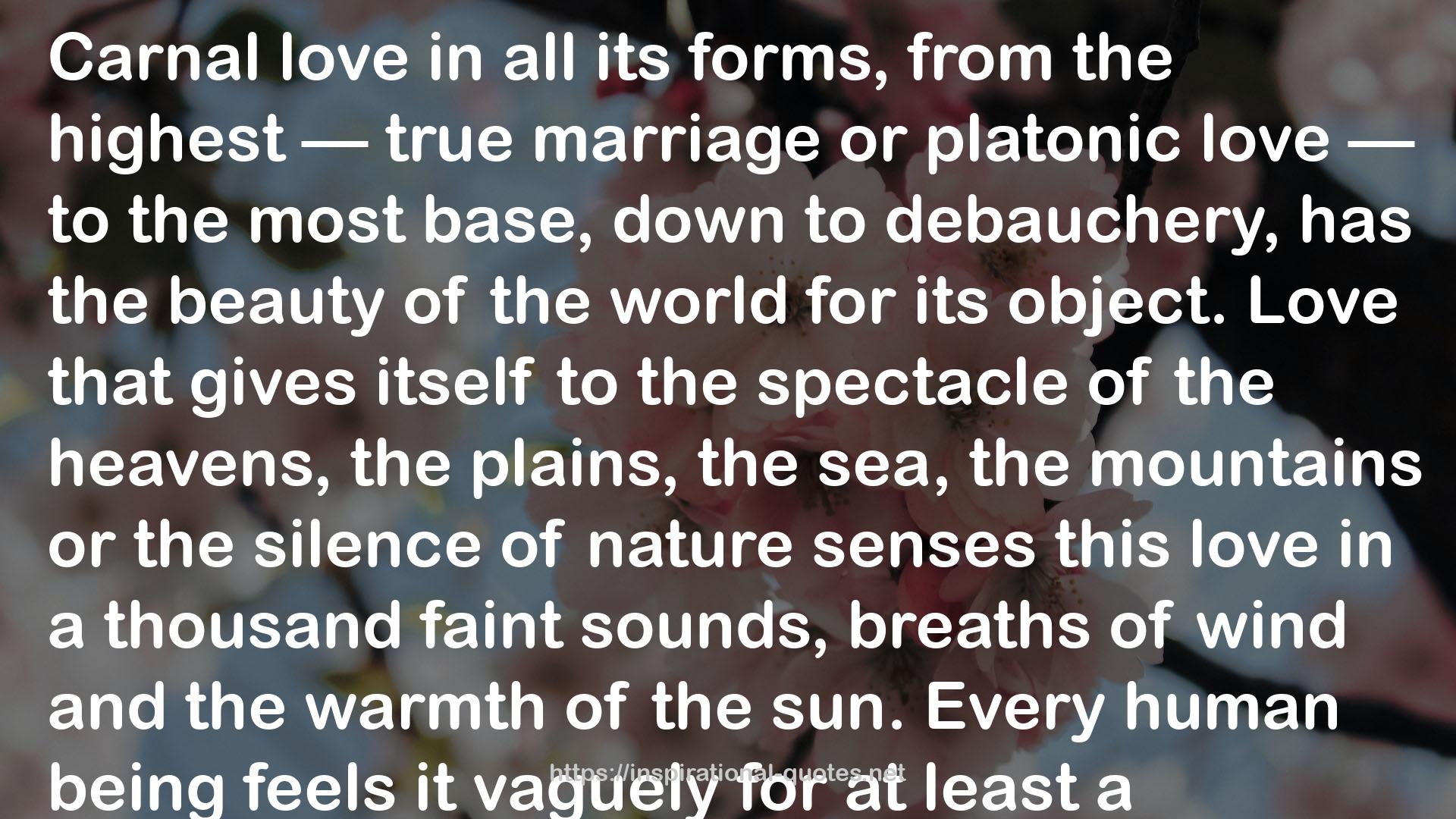" Carnal love in all its forms, from the highest — true marriage or platonic love — to the most base, down to debauchery, has the beauty of the world for its object. Love that gives itself to the spectacle of the heavens, the plains, the sea, the mountains or the silence of nature senses this love in a thousand faint sounds, breaths of wind and the warmth of the sun. Every human being feels it vaguely for at least a moment. It is an incomplete love, sorrowful, because it gives itself to something incapable of response, which is matter. People desire to transfer this love onto a being that is like it, capable of responding to love, of saying ‘yes,’ of yielding to it. The feeling of beauty sometimes linked to the appearance of a human being makes this transfer possible at least in an illusory way. But it is the beauty of the world — the universal beauty — toward which our desire leads. This kind of transfer is expressed in all literature that encompasses love, from the most ancient and most used metaphors and similes of poetry to the subtle analysis of Proust. The desire to love the beauty of the world in a human being is essentially the desire for the Incarnation. If we think it is something else, we are mistaken. The Incarnation alone can satisfy it. "
― Simone Weil , Waiting for God
